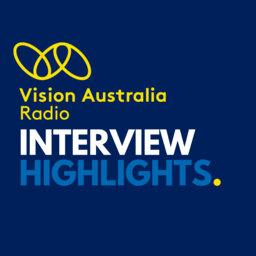Interview Highlight: Sarah Pulis and Andrew Arch - Intopia
Peter Greco chats with Sarah Pulis and Andrew Arch from Intopia about what they do and their recent work with the Human Rights Commission. Intopia is a leading digital accessibility and equitable design agency, who offer services across accessibility assessments, conformance reports, education, strategy, operations, and equitable research and design.
More info: Intopia
 Interview Highlights from Vision Australia Radio
Interview Highlights from Vision Australia Radio


